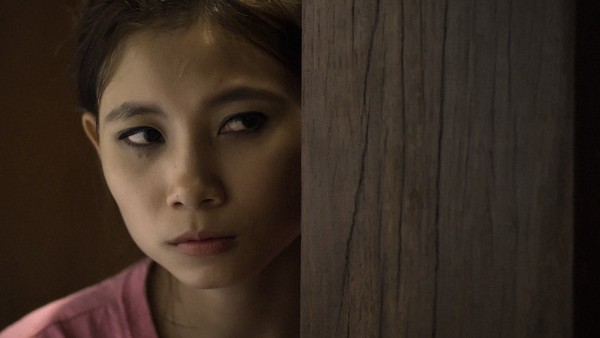We’ll have to wait until January 23 for Oscar nominations to be announced, but the Academy has released the titles of all of the films competing in the foreign-language Oscar race. According to Deadline, a record-setting number of countries have submitted films for consideration in the category. Of 92 films vying for a nomination, 25 are directed or co-directed by women by our count — an encouraging 27 percent. A nine-film shortlist will follow before final nominations are revealed.
Nineteen percent of last year’s crop of films submitted in this category were directed or co-directed by women. Just one of them ended up scoring a nod — Maren Ade’s daughter-father dramedy “Toni Erdmann.”
For comparison’s sake, consider the fact that none of this year’s or last year’s Best Picture nominees were helmed by women. The last time a woman-directed film received a Best Picture nomination was Ava DuVernay’s “Selma” back in 2015. So, women directors are better represented in the foreign-language category — featuring women directors from all over the world — than the largely American Best Picture race.
We’ve reported on some of the women-helmed features that have been submitted for the upcoming 90th Academy Awards, including Roya Sadat’s “A Letter to the President,” a drama about an official grappling with tribal laws, Angelina Jolie’s “First They Killed My Father,” an adaptation of human rights activist Loung Ung’s non-fiction book, and Annemarie Jacir’s “Wajib,” a dramedy about a father and his estranged son.
Other titles in the running include Mattie Do’s “Dearest Sister,” the story of a girl who can communicate with the dead, and Mijke de Jong’s “Layla M.” a drama about a teenage Muslim who becomes radicalized.
Check out all of the women-directed films submitted by their respective countries below. List adapted from Deadline.
Afghanistan, “A Letter to the President,” Roya Sadat, director;
Argentina, “Zama,” Lucrecia Martel, director;
Armenia, “Yeva,” Anahit Abad, director;
Australia, “The Space Between,” Ruth Borgobello, director;
Bulgaria, “Glory,” Petar Valchanov, Kristina Grozeva, directors;
Cambodia, “First They Killed My Father,” Angelina Jolie, director;
Croatia, “Quit Staring at My Plate,” Hana Jušić, director;;
Ecuador, “Alba,” Ana Cristina Barragán, director;
Georgia, “Scary Mother,” Ana Urushadze, director;
Haiti, “Ayiti Mon Amour,” Guetty Felin, director;
Hungary, “On Body and Soul,” Ildikó Enyedi, director;
Iran, “Breath,” Narges Abyar, director;
Lao People’s Democratic Republic, “Dearest Sister,” Mattie Do, director;
Luxembourg, “Barrage,” Laura Schroeder, director;
Mexico, “Tempestad,” Tatiana Huezo, director;
Netherlands, “Layla M.,” Mijke de Jong, director;
Palestine, “Wajib,” Annemarie Jacir, director;
Panama, “Beyond Brotherhood,” Arianne Benedetti, director;
Poland, “Spoor,” Agnieszka Holland, Kasia Adamik, directors;
Singapore, “Pop Aye,” Kirsten Tan, director;
Slovenia, “The Miner,” Hanna A. W. Slak, director;
Spain, “Summer 1993,” Carla Simón, director;
Switzerland, “The Divine Order,” Petra Volpe, director;
Taiwan, “Small Talk,” Hui-Chen Huang, director;
Thailand, “By the Time It Gets Dark,” Anocha Suwichakornpong, director;







